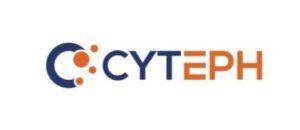
Posted: 26 May 2023
Cyteph, a spin-out biotechnology company from QIMR Berghofer Medical Research Institute, was last night awarded a $1.5m grant via the CUREator incubator.
This grant signals an official launch milestone for the Company, supporting its imminent plan to conduct a phase 1 clinical trial for its lead candidate CYT-101 in recurrent glioblastoma multiforme (GBM) patients. Under the guidance of QIMR Berghofer’s Professor Rajiv Khanna, the goal is to develop allogeneic or ‘off-the-shelf’ T cell therapies and a dual-targeting CAR T platform to rapidly advance the treatment of solid tumours.
CYT-101 is an allogeneic cytomegalovirus (CMV)-specific T cell therapy developed by Professor Khanna’s team. The novel immunotherapy uses the immune system and the power of virus-specific T cells to recognise and attack cancer cells. CMV-specific T cells are particularly effective at targeting and destroying virus-infected and malignant cells because they are primed in the body as killer T cells which rapidly migrate and penetrate deep into diseased tissues.
The program has been de-risked through two previous clinical trials using autologous CMV-specific T cell therapy in GBM patients, where it was found to be safe with preliminary efficacy signals. Autologous treatments use the patient’s own immune cells which are harvested, manipulated, then injected back into the patient; a process which is costly, can take many weeks, and the immune cells can be dysfunctional. Allogeneic treatments, often termed ‘off-the-shelf’, use donor cells from healthy volunteers. Pivoting to allogeneic treatment offers many potential benefits over autologous, including a more robust and consistent product with longer duration and treatment without delay, which is crucial for treating fast-growing tumours such as GBM.
QIMR Berghofer Distinguished Scientist, Co-Director of Queensland Immunology Research Centre and Cyteph Founder, Professor Rajiv Khanna, commented: “Securing this grant is an important commercial milestone for Cyteph and a vital step in progressing the development of its lead technology, which has been nurtured at QIMR Berghofer for 15 years. For our medical research team, one of the most rewarding parts of the job is guiding work from the lab, closer to the patient, and I am optimistic about how CYT-101 may improve the lives of people suffering from GBM.”
Cyteph Chief Executive Officer, Dr Melissa Knight, shared her enthusiasm: “We are thrilled to receive the CUREator funding and are right now welcoming further engagement with the investor community to progress our broader pipeline into the clinic. We are resolutely focused on our near-term goal to test and prove the merits of this Australian technology and to address pressing, unmet needs in the treatment of cancer.”
In addition to CYT-101, Cyteph plans to utilise the unique properties of allogenic CMV-specific T cells as a dual targeting, CAR T delivery platform ‘Cyt-ATTAC’ (Cytomegalovirus – Allogeneic Tumor TArgeting Car t) to treat solid tumours. The first CAR T asset in pre-clinical development using the platform, CYT-AT1, targets EphA3 positive solid tumours such as GBM, colorectal, prostate and lung cancer. Capital raise efforts are underway to support this promising pipeline of medical research.
For more information about this technology visit www.cyteph.bio. Investor enquiries may be directed to info@cyteph.bio.



